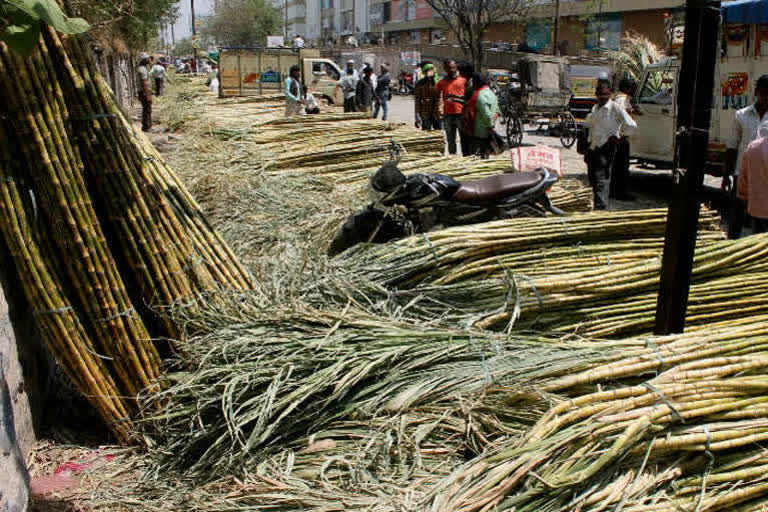New Delhi:The fall in sugar sales following nationwide lockdown to control coronavirus has precipitated a cash crisis in the sugar industry, for which the farmers working in sugar mills are facing harrowing time as their dues are yet to be cleared by the government.
According to the Indian Sugar Mills Association (ISMA), the arrears have mounted to Rs 18,000 crore.
Avinash Verma, Director General, ISMA, said: "Sugar comes in the essential commodities category, so there has been no major impact on the sugar industry, but due to lack of demand from big buyers, sugar sales have dropped significantly."
ISMA report claims that sugar sales in March and April declined by 10 lakh tonne.
Asked about the impact of the nationwide lockdown on the sugar industry, Verma told IANS: "Being an essential commodity, it helped to continue the production and sales of sugar, so there is no major impact on the sugar industry. But due to weak demand, problems have cfopped up due to cash crisis."
Even before the global pandemic hit the country, the Centre imposed a complete lockdown since March 25, due to which all the food shops including hotels and restaurants were closed. In such a situation, big buyers of sugar such as confectioners, bakery manufacturers and refrigerant companies have been missing.
Varma said, "In the last one-and-a-half months, we have had problems selling sugar. These problems have come because the demand for big buyers of sugar like cold drink, ice cream, cake, bakery, juice producers has declined".
Read more:Low oil prices helps govt to end subsidy on cooking gas
He said that cash inflow was affected due to minimal demand, while sugar mills operating in some areas of the country, especially in north India, are in need of cash as they are unable to pay the cane price to the farmers.
Varma said, "The liquidity problem was created due to the decrease in sugar sales. At the same time, the second problem was due to reduced demand for petrol as the OMC (oil marketing companies) began to slash the purchase of ethanol as there was no space to keep it in their depots. Then we urged the OMC to make arrangements to keep it in the states where ethanol is being procured.
